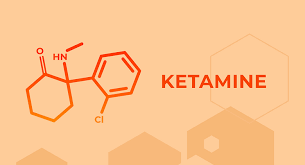When it comes to making our homes more energy-efficient, we often think about upgrading our appliances or investing in better insulation. However, one of the most overlooked yet highly effective ways to reduce energy consumption in your home is through smart films tinting. Window tinting isn’t just for cars; it can be a secret energy-saving weapon for your home. In this article, we’ll explore how window tinting can significantly improve your home’s energy efficiency and reduce your utility bills.
- Heat Rejection
One of the primary benefits of window tinting is its ability to reject heat from the sun. The sun’s rays contain not only visible light but also a significant amount of infrared radiation, which is responsible for heating up your home. Tinted windows work as a barrier, blocking a substantial portion of this solar heat, helping your home stay cooler in the summer. As a result, your air conditioning system won’t have to work as hard to maintain a comfortable indoor temperature, which leads to lower energy consumption and reduced cooling costs.
- UV Protection
Tinted windows also offer protection against harmful ultraviolet (UV) rays. UV rays are not only detrimental to your health but can also cause damage to your furniture, flooring, and other interior surfaces. Over time, exposure to UV radiation can cause fading and deterioration of these items, leading to costly replacements. Tinted windows act as a shield, blocking a significant portion of UV rays and preserving the condition and longevity of your interior furnishings.
- Year-Round Benefits
While window tinting is often associated with heat rejection in the summer, it also provides insulation during the winter months. Low-emissivity (Low-E) window films, in particular, can help maintain a consistent indoor temperature throughout the year. By trapping warmth inside your home during the winter. These films reduce the need for excessive heating, saving energy and reducing your heating costs.
- Reduced Glare
Glare from the sun can be not only uncomfortable but also a strain on your eyes. Tinted windows significantly reduce glare, creating a more pleasant and productive environment in your home. Reduced glare not only enhances your comfort but also decreases the need for artificial lighting, further reducing your energy consumption.
- Environmental Benefits
Improving your home’s energy efficiency through window tinting is not only beneficial for your wallet but also for the environment. Using less energy reduces your carbon footprint, contributing to a more sustainable and eco-friendly lifestyle. By opting for window tinting, you’re making a positive impact on the planet by conserving energy resources.
- Increased Privacy
Tinted windows offer added privacy by reducing visibility from the outside. This not only enhances your comfort but also discourages potential intruders. Improved privacy can lead to a sense of security and peace of mind, further enhancing your overall well-being.
In conclusion, window tinting is an effective and often underestimated way to make your home more energy-efficient. The benefits extend beyond mere energy savings, encompassing UV protection, reduced glare, and a more sustainable lifestyle. Whether you’re looking to reduce your cooling and heating costs, preserve the condition of your interior furnishings, or create a more comfortable and environmentally friendly living space, window tinting is your home’s secret energy saver. So, when considering ways to make your home more energy-efficient and cost-effective. Don’t forget to explore the hidden potential of window tinting.






